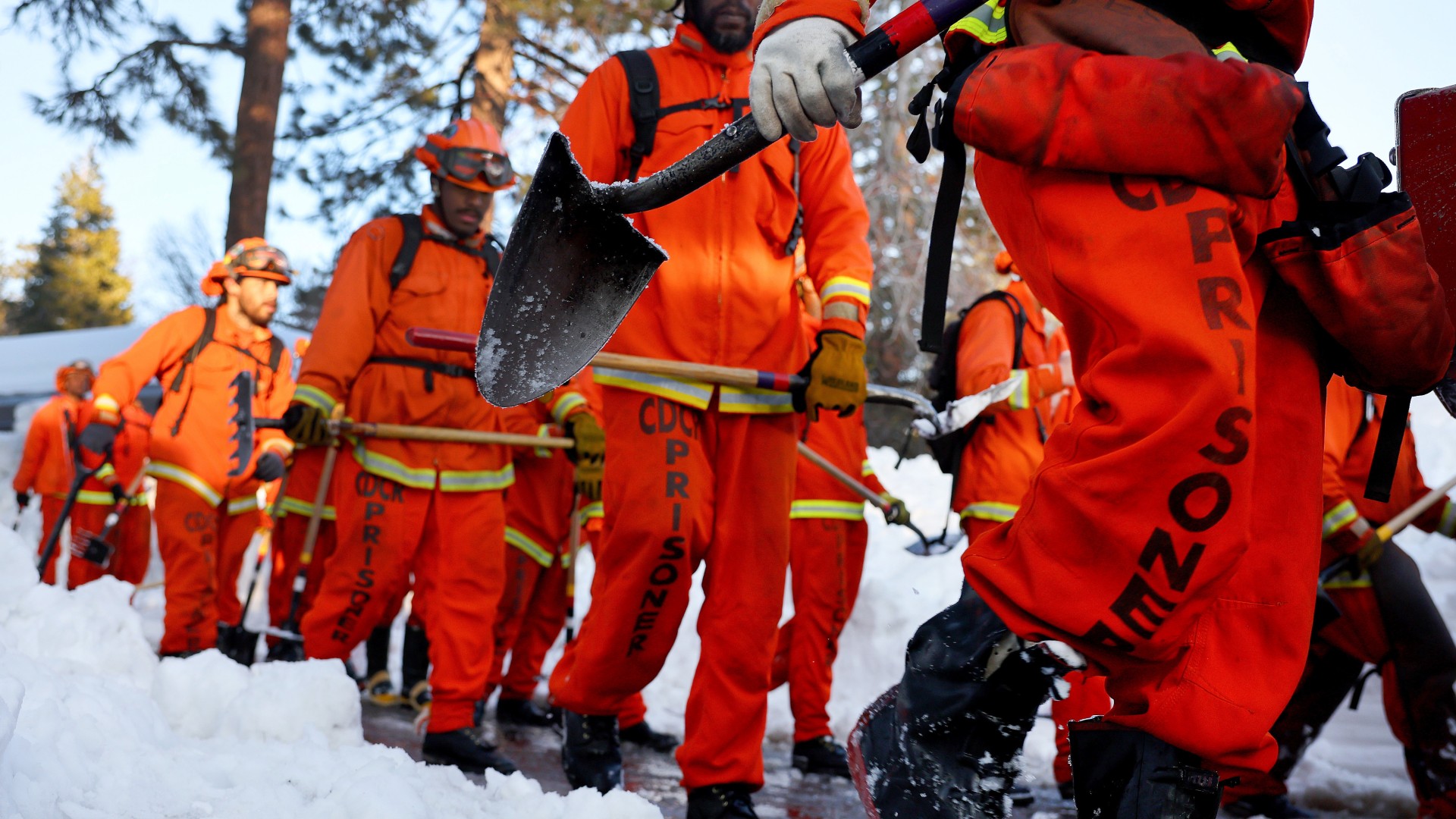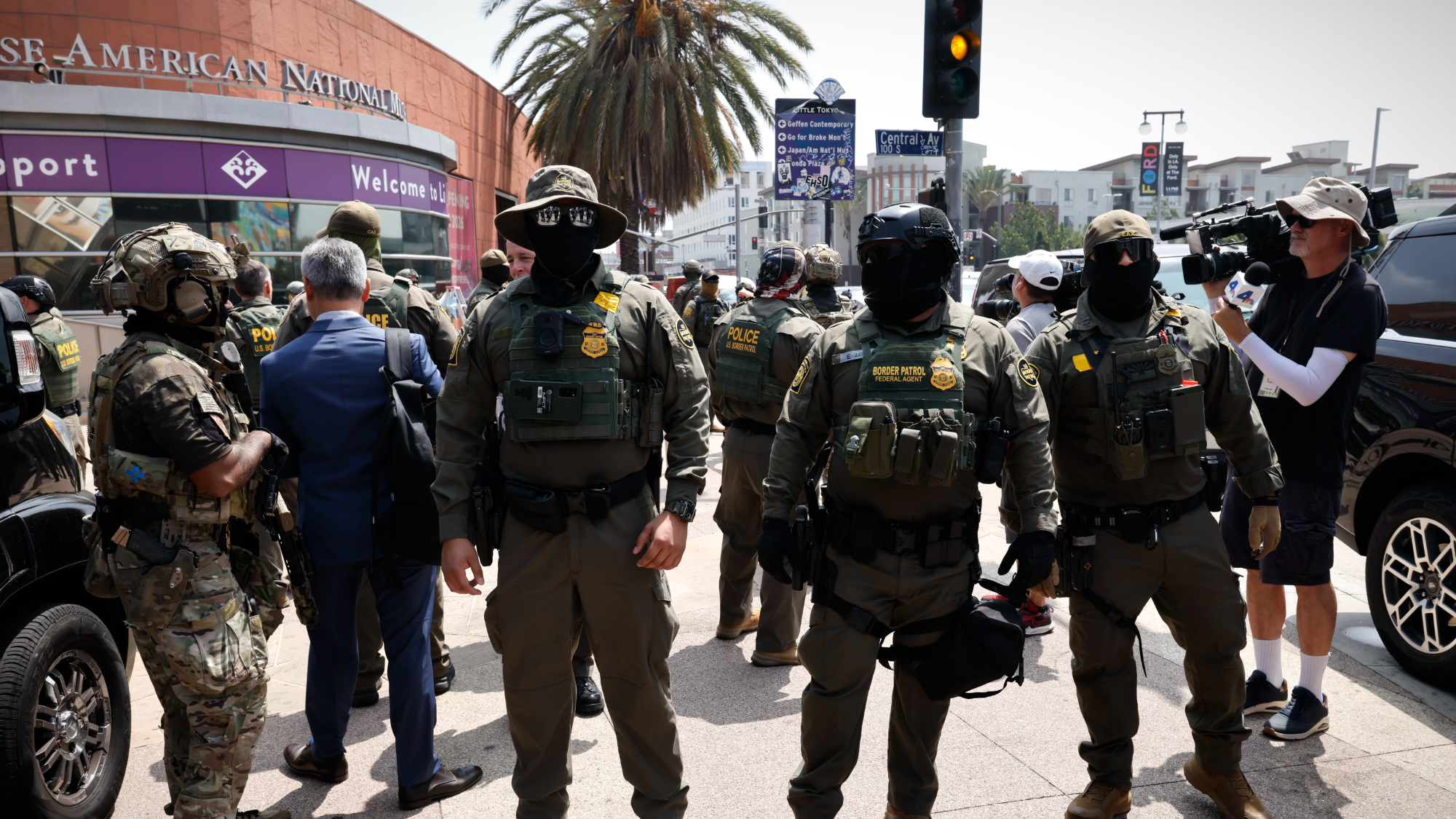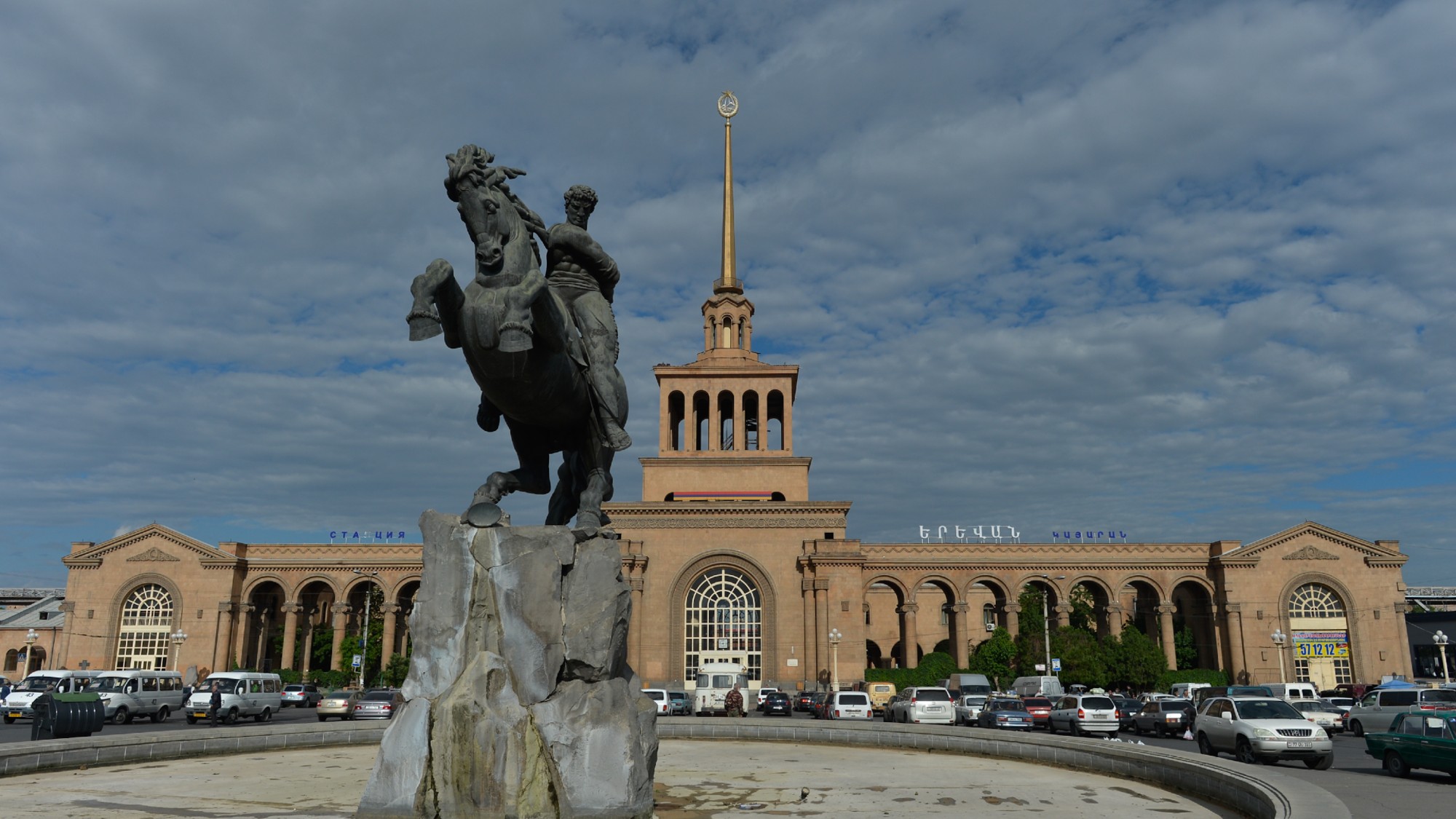Prop 6, inmate firefighters and the state of prison labor
The long-standing controversial practice raises questions about exploitation


A free daily email with the biggest news stories of the day – and the best features from TheWeek.com
You are now subscribed
Your newsletter sign-up was successful
Hundreds of inmates joined the firefighters battling the wildfires in Southern California as part of a long-running controversial labor program. The state often relies on incarcerated firefighting crews to combat wildfires in California, especially as climate change intensifies the problem.
While these crews brought "much-needed manpower to depleted fire crews," their presence also "revived criticism of the practice, including over their low pay for dangerous work," said The New York Times. Some inmates say they value the work they do, but prison rights activists largely oppose the use of prison labor, which they call exploitative.
How do prison labor programs work?
Prison labor programs have links to the passage of the 13th Amendment, which abolished slavery "except as a punishment for crime," a loophole that critics and prison rights advocates say permits exploitative labor and involuntary servitude. While the prisoners make well below minimum wage, they are part of a workforce that produces "more than $2 billion a year in goods and commodities and over $9 billion a year in services for the maintenance of the prisons where they are warehoused," the ACLU and The University of Chicago's Global Human Rights Clinic said in a 2022 joint report. In exchange, the imprisoned are paid an average of 52 cents an hour nationally — or nothing in seven states. Some are left with less than half of what they earn after taxes.
The Week
Escape your echo chamber. Get the facts behind the news, plus analysis from multiple perspectives.

Sign up for The Week's Free Newsletters
From our morning news briefing to a weekly Good News Newsletter, get the best of The Week delivered directly to your inbox.
From our morning news briefing to a weekly Good News Newsletter, get the best of The Week delivered directly to your inbox.
Why are prison labor programs controversial?
Less than ten states have amended their constitutions to abolish forced prison labor. In many states, prison work programs persist and are sometimes mandatory. "I don't think we have gotten rid of convict leasing," Darrick Hamilton, an economist and director of the Institute on Race, Power and Political Economy at the New School, said to The New York Times. "It's an illusion of choice — there's no real consent that they can offer." The ACLU found that 76% of incarcerated workers said that the prison mandated working or they risked facing additional punishment such as solitary confinement or loss of visitation privileges. "The reality is that once people enter the prison gates, they lose the right to refuse to work," Jennifer Turner, the lead author of the ACLU study, said to NPR. Instead of being paid fairly, the "prisoners' wages are often garnished to pay for things like their own room and board and court fees to appeal their cases," said Forbes.
In 2024, voters in both Nevada and California were presented with the opportunity to ban the use of prisoners as unpaid labor. Nevada's ban passed, but California voters rejected Proposition 6, which would have amended the constitution to remove language that allows involuntary servitude as a form of criminal punishment. Some imprisoned firefighters love their work, said Lori Wilson, the California Assembly member who spearheaded Prop. 6. They just wish they were paid more. "They find it truly rewarding and enriching," Wilson told NBC News.
Despite the loss, the prison rights advocates will continue "fighting to have additional wages, and to be fairly compensated." She added that they were interested in fair wages and allowing inmates to "use that service for further employment" after release. "There's an imbalance there that needs to be resolved."
A free daily email with the biggest news stories of the day – and the best features from TheWeek.com
Theara Coleman has worked as a staff writer at The Week since September 2022. She frequently writes about technology, education, literature and general news. She was previously a contributing writer and assistant editor at Honeysuckle Magazine, where she covered racial politics and cannabis industry news.
-
 The ‘ravenous’ demand for Cornish minerals
The ‘ravenous’ demand for Cornish mineralsUnder the Radar Growing need for critical minerals to power tech has intensified ‘appetite’ for lithium, which could be a ‘huge boon’ for local economy
-
 Why are election experts taking Trump’s midterm threats seriously?
Why are election experts taking Trump’s midterm threats seriously?IN THE SPOTLIGHT As the president muses about polling place deployments and a centralized electoral system aimed at one-party control, lawmakers are taking this administration at its word
-
 ‘Restaurateurs have become millionaires’
‘Restaurateurs have become millionaires’Instant Opinion Opinion, comment and editorials of the day
-
 ‘Poor time management isn’t just an inconvenience’
‘Poor time management isn’t just an inconvenience’Instant Opinion Opinion, comment and editorials of the day
-
 Judge rejects California’s ICE mask ban, OKs ID law
Judge rejects California’s ICE mask ban, OKs ID lawSpeed Read Federal law enforcement agents can wear masks but must display clear identification
-
 Big-time money squabbles: the conflict over California’s proposed billionaire tax
Big-time money squabbles: the conflict over California’s proposed billionaire taxTalking Points Californians worth more than $1.1 billion would pay a one-time 5% tax
-
 Supreme Court upholds California gerrymander
Supreme Court upholds California gerrymanderSpeed Read The emergency docket order had no dissents from the court
-
 ‘Various international actors hope to influence the result for their own benefit’
‘Various international actors hope to influence the result for their own benefit’Instant Opinion Opinion, comment and editorials of the day
-
 Gavin Newsom and Dr. Oz feud over fraud allegations
Gavin Newsom and Dr. Oz feud over fraud allegationsIn the Spotlight Newsom called Oz’s behavior ‘baseless and racist’
-
 ‘Something close to a universal rallying cry’
‘Something close to a universal rallying cry’Instant Opinion Opinion, comment and editorials of the day
-
 How ‘Manchesterism’ could change the UK
How ‘Manchesterism’ could change the UKThe Explainer The idea involves shifting a centralized government to more local powers
